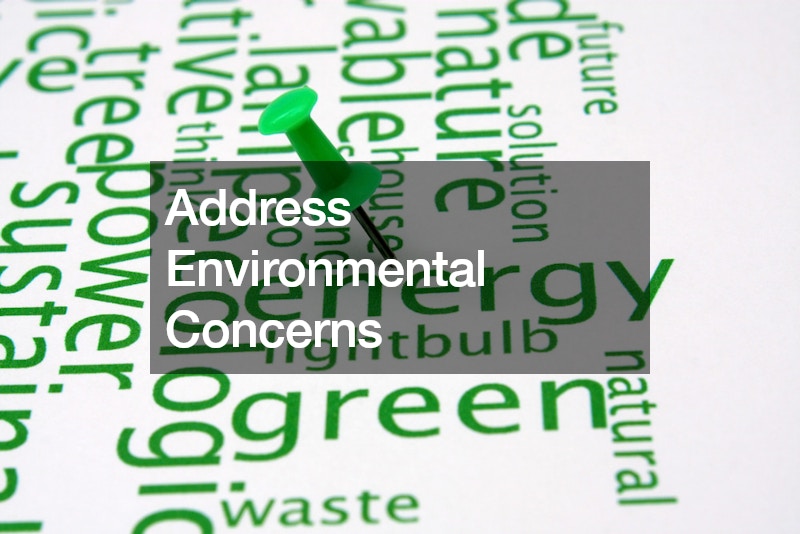Selling a commercial property is a significant undertaking that requires careful planning and execution. Ensuring that your property is in optimal condition can help you attract potential buyers and achieve the best possible price. This comprehensive guide will walk you through the essential tasks you need to complete before putting your commercial property for sale.
Evaluate the Property’s Condition

Before listing your commercial property, it’s crucial to conduct a thorough evaluation of its current condition. This assessment will help you identify areas that need repair or improvement.
Inspect for Structural Issues
Structural integrity is a top priority for any commercial property. Hire a professional inspector to examine the building for any signs of damage or wear and tear. Look for cracks in the foundation, walls, and ceilings, as well as any signs of water damage. It’s essential to catch these issues early, as they can become major problems if left unchecked.
In some cases, structural issues may require significant repairs. For example, if there are foundational problems, you may need to bring in specialists to reinforce or rebuild parts of the structure. This can be a costly and time-consuming process, but it’s necessary to ensure the safety and stability of the building.
Assess Electrical and Plumbing Systems
The electrical and plumbing systems are critical components of any commercial property. Ensure that these systems are up to code and functioning correctly. Consider hiring commercial electricians to inspect and repair any electrical issues, and a licensed plumber to address any plumbing concerns.
Outdated or faulty wiring can be a significant hazard and a major turnoff for potential buyers. Upgrading to modern, energy-efficient systems can be a selling point. Similarly, plumbing issues such as leaks, low water pressure, or outdated fixtures can detract from the property’s value. Addressing these issues proactively can make your property more attractive to buyers.
Check for Mold and Asbestos
Mold and asbestos are significant health hazards that can deter potential buyers. Mold removal contractors can help identify and eliminate mold infestations, while asbestos abatement specialists can safely remove any asbestos found on the property.
Mold can cause respiratory issues and other health problems, making it essential to ensure your property is mold-free. This may involve removing affected materials and treating areas to prevent future growth. Asbestos, often found in older buildings, can cause serious health issues if disturbed. Professional removal is necessary to comply with health and safety regulations.
Clean and Declutter
A clean and clutter-free property is more appealing to potential buyers. Taking the time to thoroughly clean and declutter your commercial space can make a significant difference in its marketability.
Hire Professional Cleaning Services
Investing in professional cleaning services can ensure that your property is spotless and ready for showings. This includes deep cleaning carpets, windows, and other surfaces that may have accumulated dirt and grime over time.
Professional cleaners can reach areas that are often overlooked, such as high ceilings, ductwork, and behind large fixtures. A thorough cleaning can also help identify any areas that need repair or maintenance. In some cases, it may be beneficial to schedule regular cleaning services until the property is sold to maintain its appearance.
Remove Unwanted Items
Over the years, commercial properties can accumulate a lot of unwanted items and equipment. A moving company can assist in removing these items and transporting them to storage or disposal facilities. Additionally, trash removal services can help you get rid of any junk that is no longer needed.
Decluttering can make spaces look larger and more inviting. It also helps potential buyers envision how they might use the space. Items that are still in good condition but no longer needed can be donated to local charities. This not only helps with decluttering but can also provide tax benefits.
Address Environmental Concerns

Environmental issues can significantly impact the value and marketability of your commercial property. It’s essential to address any environmental concerns before listing your property for sale.
Implement Waste Management Solutions
Proper waste management is crucial for maintaining a clean and environmentally friendly property. Consider renting a local roll off dumpster to handle large amounts of waste and debris during the cleaning and renovation process. This can help you efficiently manage waste disposal and keep the property in top condition.
Having a designated area for waste can help keep the property organized and reduce the risk of environmental contamination. It also makes it easier to separate recyclable materials and hazardous waste, ensuring proper disposal.
Recycle Metal and Other Materials
If your property has accumulated metal waste or other recyclable materials, consider utilizing metal recycling services. These services can help you dispose of scrap metal and other recyclable materials in an environmentally responsible manner.
Recycling not only helps the environment but can also reduce disposal costs. Many recycling companies will pick up materials directly from your property, making the process convenient. Additionally, recycling can be a selling point for environmentally conscious buyers.
Enhance Curb Appeal
First impressions are crucial when selling a commercial property. Enhancing your property’s curb appeal can attract potential buyers and create a positive first impression.
Upgrade Landscaping
Well-maintained landscaping can significantly improve the appearance of your property. Hire a professional landscaping company to trim trees, mow lawns, and plant flowers or shrubs to create an inviting exterior.
Landscaping improvements can include adding new plantings, installing irrigation systems, and creating outdoor seating areas. These enhancements not only make the property more attractive but can also increase its functional outdoor space. Regular maintenance is key to keeping the landscaping looking its best.
Install or Repair Fencing
Commercial fences provide security and define property boundaries. Ensure that any existing fences are in good condition, and consider installing new fencing if needed. This can enhance the property’s security and aesthetic appeal.
There are various fencing options available, including chain link, wood, and ornamental metal. Choose a style that complements the property and meets security needs. Fencing can also be used to create private outdoor spaces or designate specific areas for different uses.
Conduct Necessary Repairs and Upgrades

Investing in repairs and upgrades can increase the value of your commercial property and make it more attractive to potential buyers.
Repair Structural Damages
Address any structural damages identified during the property inspection. This may include repairing cracks, fixing leaks, or replacing damaged materials. Ensuring that the property is structurally sound is essential for attracting buyers.
Structural repairs can be extensive and may require the expertise of engineers and specialized contractors. It’s important to document all repairs and provide potential buyers with a detailed report of the work done. This transparency can build trust and justify a higher asking price.
Upgrade Electrical and Plumbing Systems
Consider upgrading outdated electrical and plumbing systems to modern standards. This can improve the property’s safety and efficiency, making it more appealing to buyers. Hiring commercial electricians and licensed plumbers for these upgrades is essential to ensure the work is done correctly.
Modernizing these systems can include installing energy-efficient lighting, upgrading electrical panels, and replacing old plumbing fixtures with water-saving models. These upgrades can reduce operating costs for the new owner, making the property more attractive.
Paint and Refresh Interiors and Exteriors
A fresh coat of paint can do wonders for a commercial property’s appearance. Hire commercial painters to refresh both the interior and exterior of the building. Choose neutral colors that appeal to a broad range of buyers and create a clean, modern look.
Painting can also include updating signage, repairing and painting trim, and refinishing surfaces. These improvements can give the property a cohesive and polished look. In some cases, it may be beneficial to consult with a design professional to choose colors and finishes that enhance the property’s appeal.
Prepare Documentation and Disclosures
Proper documentation and transparency are crucial when selling a commercial property. Ensure that you have all necessary documents and disclosures prepared before listing your property.
Gather Financial Records
Collect all relevant financial records, including income statements, expense reports, and tax documents. These records provide potential buyers with valuable insights into the property’s financial performance.
Detailed financial records can help buyers assess the profitability and potential return on investment of the property. It’s important to present these records in an organized and professional manner. Consider working with an accountant to ensure accuracy and completeness.
Prepare Legal Documents
Work with a real estate attorney to prepare all necessary legal documents, including property deeds, titles, and any lease agreements. Ensuring that all legal documents are in order can help streamline the selling process and build trust with potential buyers.
Legal documents should also include any disclosures required by law, such as information about environmental hazards, zoning restrictions, and existing liens. Providing comprehensive and accurate information can help prevent delays and legal issues during the sale process.
Market Your Property Effectively

Effective marketing is essential for attracting potential buyers and achieving the best possible price for your commercial property.
Hire a Real Estate Agent
A professional real estate agent with experience in commercial properties can provide valuable assistance in marketing your property. They can help you set a competitive price, create effective marketing materials, and reach a broad audience of potential buyers.
Real estate agents can also provide insights into market trends and buyer preferences. They can help you identify key selling points and develop a marketing strategy that highlights the property’s strengths. Working with an agent can save time and reduce the stress of selling a commercial property.
Create High-Quality Listings
High-quality listings with professional photos and detailed descriptions are crucial for attracting potential buyers. Consider hiring a professional photographer to capture the property’s best features and create compelling visuals.
In addition to photos, consider creating virtual tours or video walkthroughs of the property. These tools can help potential buyers get a better sense of the space and its layout. High-quality listings should also include detailed information about the property’s size, amenities, location, and any recent upgrades or improvements.
Utilize Online Marketing Platforms
In today’s digital age, online marketing platforms are essential for reaching a wide audience. List your property on commercial real estate websites, social media, and industry-specific platforms. These platforms can help you connect with potential buyers both locally and internationally.
Consider investing in targeted online advertising to increase visibility. This can include pay-per-click ads, social media ads, and email marketing campaigns. Online marketing allows you to track engagement and adjust your strategy based on performance metrics.
Network with Industry Professionals
Networking with industry professionals, such as commercial real estate brokers, investors, and developers, can help you find potential buyers. Attend industry events, join professional associations, and leverage your existing contacts to spread the word about your property.
Building relationships with industry professionals can also provide valuable insights into market trends and buyer preferences. These connections can help you identify potential buyers and negotiate favorable terms.
Coordinate Moving and Transition Plans
Once you have secured a buyer for your commercial property, it’s essential to coordinate moving and transition plans to ensure a smooth handover.
Hire a Moving Company
A moving company can assist with the relocation of any remaining items and equipment from the property. Professional movers can ensure that your belongings are transported safely and efficiently to their new location.
When choosing a moving company, consider their experience with commercial moves and their ability to handle specialized equipment or sensitive items. Obtain multiple quotes and check references to ensure you select a reputable company.
Arrange for Moving Services
In addition to hiring a moving company, consider arranging for other moving services, such as packing, unpacking, and storage solutions. These services can help make the transition process more manageable and stress-free.
Packing services can save time and ensure that items are properly protected during transit. Storage solutions can provide temporary space for items that cannot be immediately moved to their new location. Coordinating these services in advance can help ensure a smooth and efficient move.
Conduct a Final Walkthrough
Before completing the sale, conduct a final walkthrough of the property to ensure that everything is in order and ready for the new owner.
Verify Repairs and Upgrades
Ensure that all necessary repairs and upgrades have been completed to your satisfaction. This includes checking for any remaining structural issues, electrical and plumbing problems, and ensuring that the property is clean and well-maintained.
A final walkthrough can help identify any last-minute issues that need to be addressed before the sale is finalized. It’s important to document the condition of the property and any outstanding items to avoid disputes with the buyer.
Confirm Removal of Personal Items
Make sure that all personal items and equipment have been removed from the property. This includes checking storage areas, closets, and other spaces where items may have been overlooked.
Leaving personal items behind can create complications for the new owner and delay the closing process. Conduct a thorough check of the property to ensure that everything has been removed and the space is ready for the new owner.
Legal and Financial Closing Procedures
The final step in selling your commercial property involves completing all legal and financial closing procedures.
Review and Sign Closing Documents
Work with your real estate attorney to review and sign all closing documents. Ensure that you fully understand the terms of the sale and that all legal requirements have been met.
Closing documents typically include the sales contract, transfer of deed, and any necessary disclosures. Reviewing these documents carefully can help prevent misunderstandings and ensure a smooth closing process.
Transfer Ownership and Keys
Once all closing documents have been signed, transfer ownership of the property and provide the new owner with the keys. This final step completes the sale and officially hands over the property to the new owner.
It’s important to provide the new owner with all necessary keys, access codes, and any relevant information about the property. This can include contact information for utility providers, maintenance schedules, and warranty information for recent upgrades.
Celebrate Your Success
Selling a commercial property is a significant achievement that deserves recognition. Take the time to celebrate your success and reflect on the hard work and effort that went into preparing your property for sale.
Plan a Celebration
Consider planning a celebration to mark the successful sale of your commercial property. This could be a small gathering with family and friends or a more formal event to commemorate the occasion.
Celebrating your success can provide a sense of closure and accomplishment. It’s an opportunity to acknowledge the effort and dedication that went into the process and to share your success with those who supported you.
Selling a commercial property involves a multitude of tasks and considerations. From evaluating the property’s condition to addressing environmental concerns, enhancing curb appeal, and coordinating moving plans, each step is crucial for ensuring a successful sale. By following this comprehensive guide and enlisting the help of professionals, you can maximize the value of your commercial property and achieve a smooth and profitable transaction. Whether you’re selling a small office space or a large industrial complex, these essential tasks will help you prepare your property for sale and attract potential buyers. Taking the time to address these details can make a significant difference in the outcome of your sale, ensuring that you achieve the best possible price and a successful transition to the new owner.

